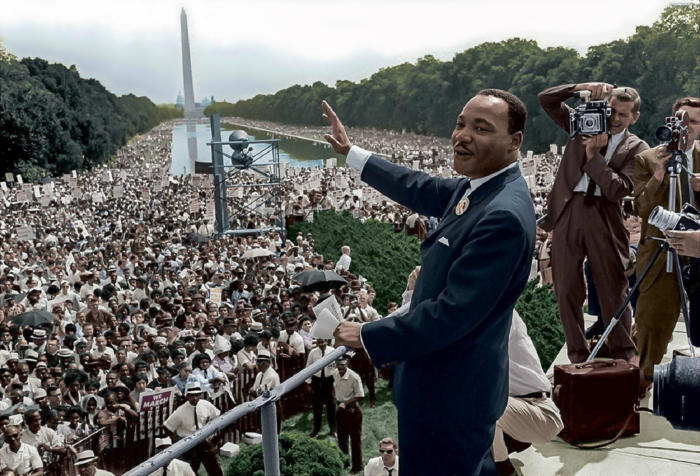Author: Deepak Puri / Source: CIO By Various (National Archives) [CC BY-SA 4.0 (http://creativecommons.org/licenses/by-sa/4.0)], via Wiki

Money talks. Companies listen when millions of customers boycott their products and services.
Peaceful, economic mass-protests aren’t new. Gandhi and Martin Luther Kings Jr. used them. Activists launch bigger, more effective protests using social media and online commerce. The purchasing power of millions of followers’ becomes a powerful tool to demand change.
How are such campaigns organized? When do they work best? What technology is involved?
Background
Groups with little political power have to use what few means they do have to make their voices heard. Collectively refusing to buy certain products ensures that their message is heard by corporations and relayed to politicians. Economic boycotts work.
Mahatma Gandhi is credited with organizing the first major mass economic boycott. India used to be major producer of cotton textiles before being colonized by the British. The East India Company imposed tariffs on Indian textile manufacturing, forcing cotton to be exported to the UK where it was manufactured into cloth and sold back to India. This devastated the local Indian economy. Gandhi recognized the injustice and came up with a simple, peaceful plan. He encouraged his followers to spin their own cotton yarn on a simple loom to make their own clothes. The protest worked and the British tariffs were removed.
 https://commons.wikimedia.org/wiki/File%3AGandhi_spinning.jpg
https://commons.wikimedia.org/wiki/File%3AGandhi_spinning.jpgSeven hundred sanitation workers went on strike in Memphis in 1968 following years of poor pay and dangerous working conditions. Memphis’s mayor, Henry Loeb, declared the strike illegal and refused to meet with local black leaders. 10,000 tons of rubbish had piled up by February and Loeb began to hire strikebreakers. The marchers faced police brutality in the forms of mace, tear gas, and billy clubs. The local news media were generally favorable to Loeb, portraying union leaders as meddling outsiders.
Martin Luther King Jr (MLK)…

COMMENTS